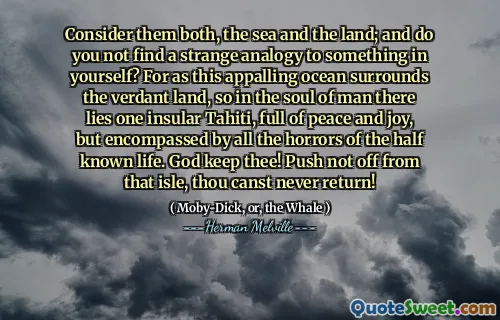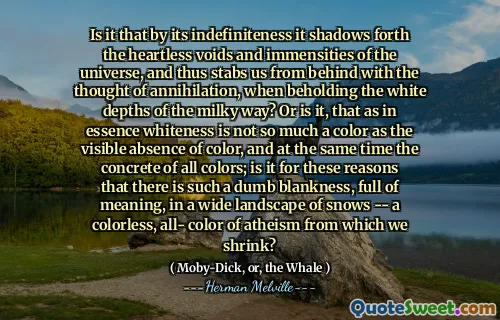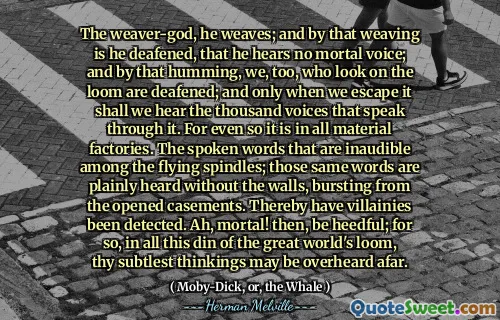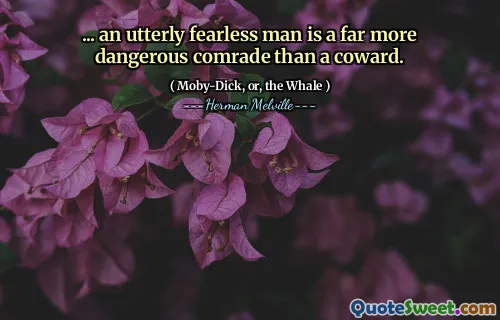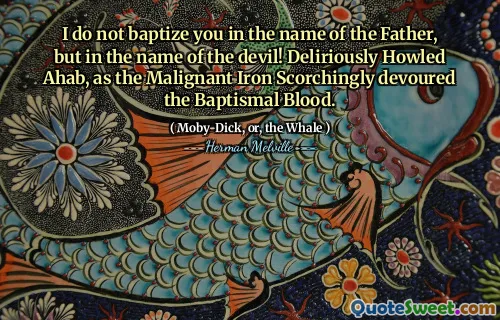
I see in him outrageous strength, with an inscrutable malice sinewing it. That inscrutable thing is chiefly what I hate; and be the white whale agent, or be the white whale principal, I will wreak that hate upon him.
In Herman Melville's "Moby-Dick," the narrator expresses a deep-seated animosity toward Moby Dick, the white whale. He perceives the whale as embodying a formidable power coupled with an unfathomable maliciousness that he cannot fully comprehend. This complexity fuels his hatred, suggesting that his feelings are not just toward the whale itself but also toward the enigmatic nature of its existence.
The narrator is driven by a desire to confront this malevolence, illustrating a struggle between man and nature. Whether Moby Dick represents a force of nature or a more personal adversary, the narrator's intent to exact revenge underscores a central theme in the novel: the conflict between humanity's quest for understanding and the unknowable elements of the world.
